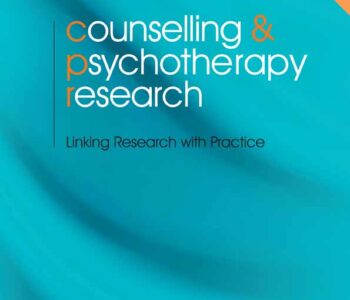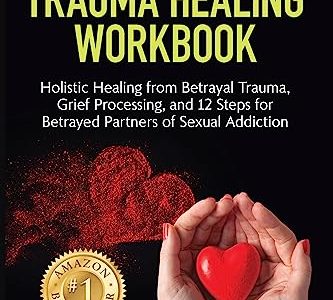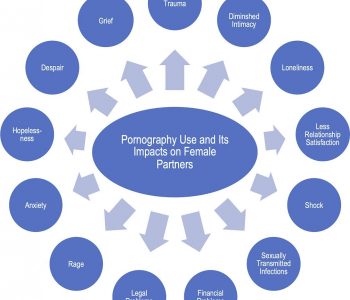 Resources
Resources
 Resources
Resources
 Resources
Resources
So why do some people crave external validation all the time?
This maladaptive behaviour emerges if the person’s attachment bonds with their parents were severed when they were young, if they received little to no care, if it was challenging to be heard, felt, or seen correctly, or if children are frequently given the lowest priority in the homes where they are raised. External factors are also important in this situation. Perhaps the parents are more concerned with advancing their jobs than building a strong relationship with a young child. A child could occasionally find themselves in that situation because their parents want to go out and enjoy their own lives. If this occurs, parents can leave the child behind with less attuned caregivers who could make the child feel unworthy and not good enough. As they age, these children learn to look outside themselves for validation to fill the emptiness inside and eliminate the uncomfortable feelings of not being good enough. Thus, sex can frequently be used as a coping mechanism, and some people (more male than female) use sexual stimulation or activities as a self-soothing approach because they cannot internally validate themselves and as a means to escape. This may imply that these people are unaware of their own or others’ genuine worth.
Most sex addicts have gone through childhood trauma or are from dysfunctional family systems, and they constantly seek sexual stimulation or activity to medicate or numb the anguish they have suffered. It’s possible they came into contact with or engaged with someone who had injured them or caused them pain, suffering, or wounds. As a result, they don’t have high regard for themselves, feeling a void within, and chasing dopamine to relieve the pain becomes addictive.
Over time, this issue gets worse. Additionally, as one starts to view themselves and others as objects, they gradually lose the desire to be by themselves and the capacity to completely understand who they are, their own values and others’. This happens due to their declining self-respect and reliance on other people for temporary or illusory external approval. Because of this, whenever someone experiences stress, resentment, worry, loneliness, or feeling abandoned or rejected, they may feel emotionally, intellectually, or spiritually empty. But the more uncomfortable these people feel, the more compelled they feel to act out sexually to escape those unpleasant emotions. Due to the involvement of dopamine and its reward-inducing sensations during sexual arousal or release, unpleasant emotions are quickly and briefly forgotten. However, the more compulsive sexual behaviours these individuals engage in, the worse they finally feel about themselves and everyone else.
People might carry early life sexual trauma for the rest of their life, and it can confuse the body since their physical reactions may differ from their emotional and mental ones. Unfortunately, sexual abuse affects the victim’s brain as well as physiology. Because of their perplexing sensations, the child could find it difficult to comprehend what is happening. They may be embarrassed and ashamed while simultaneously having a physiological reaction that tricks the mind into thinking that what is happening is acceptable or enjoyable. As a result, they are left confused and unclear of what to feel and what to think. And when that occurs, a young person may become extremely confused about what is acceptable for themselves and others as children, teenagers, or even adults. They may occasionally harm other people similarly due to this unattended internal conflict, the anger, pain, and wounds that have been generated.
Due to the addictive nature of dopamine overstimulation, many people (particularly young people) who constantly seek out and partake in sexual excitement develop addictions. Since they didn’t feel in control growing up and don’t feel that way about themselves as adults, they feel more powerful when they can manipulate a situation, a circumstance, or a person to get what they want from them. Sex addicts are opportunistic, and because of this, they use sex to control someone or gain power over them is a profoundly selfish behaviour that will always replace love with lust.
The compulsive nature of sexual addiction makes it about lust, which is a massive deceit because love brings happiness, inner peace, and ecstasy, some of the most magnificent things a human can experience, but lust will take those away. Lust is a selfish act that makes people want everything for themselves and disregard what it will take from others. An individual becomes an incredibly destructive force to himself and others once they have tuned themselves into lust-driven.
Without the rush of the sexual chase, life would be monotonous for a sex addict. Life gets repetitive because they don’t know how to handle their emotional needs and are out of touch with their emotional maturity. They start looking outside to see what people think of them, who they can objectify and dominate. Some sex addicts find their fix (dopamine rush) in lustful hunting behaviours, which provides them with the exhilarating sensation they desire; thus, they never stay with one sexual act or partner for very long. As a result, those driven by lust will become more enthusiastic and engaged in exploring novel approaches to entertain sexual behaviours.
But when one feels empty, or anything inside them could be traumatic, one doesn’t want to tune into that emotion. Instead, they will continue to run nonstop while looking for the next challenge, the next thing to acquire, the next fix, and the next triumph. And the reason for that is escaping their internal struggles.
Sex addicts at work might carry out their responsibilities as society would expect, yet off the clock, they might partake in exciting and compulsive sexual behaviours. And that’s the part people hide because they believe, “If I have this small piece of myself, then this is mine, and I can do anything I want in this world, and no one will find out about it,” but that’s completely untrue because they also missed out on the chance to live a fully integrated life, which has a higher chance of success than keeping a secret existence.
They also deny themselves the chance to be authentic, which allows them to develop and have a richer, more meaningful experience than a hidden existence that is shadowy and full of shame. People who constantly seek compulsive sexual arousal find it challenging to be responsible. They are caught in an adolescent view of emotional maturity, and they fear looking at the truth because they don’t want to change and are afraid to mature. They worry that if they are responsible to themselves and concentrate on their growing process, they will lose a delusional and adolescent part that they use to go for thrills and lead a secret existence.
Those constantly seeking sex often struggle to control their physical and mental impulses. This is one of the effects if they notice a specific trigger. Perhaps when they see an attractive woman or a man strolling by, a portion of their body or mind will awaken. This part of their mind will torment them, driving them to pursue the person in their fantasy or reality. What’s going on is that they have neurologically programmed themselves to try to satisfy a desire in a way that doesn’t genuinely satisfy the need. Thus, they will develop a compulsive need to do it. Additionally, people are thinking in their heads, “I have to have sex,” “I have to have sex,” and “I want this person,” and this thinking eventually turns into an obsession. And even if they engage in sex, it wouldn’t satisfy their need, and after that instant has passed, the emptiness they experience will return.
However, when their genuine needs—a lack of attachment, intimacy, a sense of invalidation, a previous trauma that has to be healed, self-rejection, a build-up of shame, and a lack of confidence in their capacity to care for themselves holistically and healthily—need to be addressed, they are unable to do so.
Truthfully, sex addiction has less to do with liking sex and more with escaping discomfort and fear.
Dr Fai (2023)
 Resources
Resources
Those who have decided to stay after discovering their partner’s infidelity require superhuman strength. They now have to simultaneously manage and avoid coping with the emotions of hurt, betrayal, disappointment, irritation, disgust, rage, and grief while remaining in the relationship. Because they chose to stay, they must make an effort to view their unfaithful partner as a desirable and valued person once more, even though doing so could make them feel repelled. In reality, the betrayed partner becomes more lost and confused as a result. The entire situation is stressful and impractical for the betrayed partner, who wants to believe the other person won’t hurt them any longer.
They continuously think about the where, what, whys, and how. They are aware of and hounded by all the unending questions which rarely have convincing answers. They consequently experience anxiety and uncertainty about both themselves and their wayward partner.
In contrast, with their twisted reality, the unfaithful partner enters the space and impatiently says, “I want you and us to reconcile and heal, so please forgive me.”
Ultimately, the deceived partner who chose to remain (but did not know what they were getting into) must understand the lengths they must go to remain in the relationship and forgive their partner sincerely. That will not occur in a day or over the weekend but over a long, intentional and tedious process.
To be completely honest, the wayward partner has no right to set a time limit on the betrayed partner’s healing or forgiveness. They were harming their partners behind their backs and were fully conscious of their decisions, which is why they were hidden. They did so intentionally and for self-preservation each time they lied or deceived. By not telling the betrayed partner the truth about the secretive behaviours, the decision was made for them instead of allowing them to make it themselves.
Because the wayward partner knew that their actions would ruin their partner (and their relationship), the truth was exposed, and the knowledge of the truth would be devastating, leaving the betrayed forever changed.
Dear wayward partner, before making these outrageous demands for quick healing or hasty forgiveness, consider the extent of the harm you have already done to your partner. Your partner can hardly function because they cannot even think straight or even eat or sleep. They are unable to fulfil their everyday obligations or meet their work commitments because they must fight with constantly intrusive thoughts and images (triggers). Your partner constantly worries about what you did in the past and are doing in the present. Your past is their present. Their thoughts continue to torment them, and therefore there is no logical end to their suffering. Most people remain in committed partnerships while facing infidelity because love, family, children, and history are complex responsibilities and values. Staying in an intimate relationship after being betrayed goes against most betrayed partners’ morals and is something they never believed they would do; therefore, the process is not only an external battle but also a traumatic internal one.
So please develop compassion and empathy and think about your betrayed partner’s terrifying experiences (imposed by your actions) before you say they ought to move on.
Dr Fai (2023)
 Resources
Resources
Dr Fai’s new workbook is to assist the impacted partner to process betrayal trauma, grief and purposeful designed 12- Steps. This book is uniquely created to give easy-to-apply resources to betrayed partners who may suffer from PTSD, depression, anxiety, diminished self-esteem, body image issues, lost trust and more.
Links for the new book
US: https://www.amazon.com/dp/B0CBLDYPTC
UK: https://www.amazon.co.uk/dp/B0CBLDYPTC
AUS: https://www.amazon.com.au/dp/B0CBLDYPTC
CA: https://www.amazon.ca/dp/B0CBLDYPTC

 Resources
Resources
It’s my new book that is based on my recent 2022 research findings.
It is evidence based and describes the intimate partners of sex addicts’ lived experiences and trauma caused by their partner’s sex addiction.
 Resources
Resources
 Resources
Resources
Betrayal causes trauma, and Trauma Blocks Intuition
Natural instincts and intuition are essential for a healthy and happy life as a woman. This subtle intuition, or inner voice, notifies us when things are going well or when we need to make a change. Unfortunately, along with all the physical damages that occur to our body when we are in constant crisis, we also become paralysed and more confused in our decision-making. When the energy in our brain is spent in fight/ flight/freeze, there is little energy left for the prefrontal cortex or the judgment and rational thinking part of the brain.
When you’re in fight/flight/freeze mode, you may believe that everything is dangerous, even if it isn’t.
Unfortunately, once the truth about a partner’s behaviour is revealed, most women lose touch with their intuition and slip into a perplexing spiral due to trauma.
Women say things such as, “I always have the feeling that things are unsafe, even if they are. So because I feel in danger, I don’t let him or anybody else inside my emotional zone.”
We must be able to practise transitioning from feeling hijacked, overwhelmed, and anxious to peaceful and calm each time we are triggered because trauma is chronic and will be activated quite frequently at first and less often over time. Therefore, each time your trauma triggers you, it is critical to learn how to self-soothe, relax the mind, journal, connect to another woman, and achieve peace and serenity by reconnecting with your intuition.
The remedy for relational pain caused by attachment injuries, according to research, is a meaningful, secure connection (what researchers call secure bonding). Secure bonding is what heals the wounds and makes the relationship safe again. However, only repeated experiences of safe, meaningful emotional connection with our relationship (partner) can lead to this form of secure connection. You heard me right; this is a mutual process. Therefore, you both must show up in this space and not only the one who betrayed you.
This means that both individuals must learn to be vulnerable to one another.
In this space, you must become intentional and choose that the betrayal must be examined in new ways. The most painful aspects of the hurt, the most fearful fears, and the most vulnerable aspects of the harm must be articulated and received with care and vulnerability, emphasising honesty, connection, and safety. Explosions, name callings, shaming and blaming will only cause further rupture and diminish the safety and trust.
Establishing Your Boundaries:
Many women believe that they are overbearing, oppressive, or just plain cruel by establishing boundaries. This is not correct. Boundaries function to keep you and others safe and are based on the only person over whom you have control: yourself.You’re not in charge of anyone’s actions; instead, you’resetting a standard and asking people to follow it. The other people in your life will then decide, and they will be responsible for the consequences.
As you consider the consequences of specific actions, you must be willing to carry out your action plan. Any boundaries or consequences you create but don’t enforce will make you look like a walking doormat to your husband (or children, or anybody else in your life).
Poor behaviours/ acting ins by the betrayed (revenge behaviours)• A persistent cycle of criticism, blame, humiliating, belittling, and verbal abuse • Putting the partner on a treadmill so they can never meet your demands by withholding or keeping emotions, praise, sharing feelings, sex and intimacy• Manipulation, and poor behaviour towards the partner(because they initially hurt you) with a cycle of explosions, unhealthy actions, and provoked confrontations • Anger outbursts and lack of ownership of one’s triggermanagement • Using the partner solely as a servant or a service person.• Attempting to use the partner in a functionship (i.e., making money, running the business, doing house chores, etc.).• Never initiating intimacy, apologies, or physical touch. • Putting themselves in a good box (positive light) and their partner in a bad box (negative light ).• Using phrases like “always” and “never.” To criticise or impose contempt.• Being defensive and overly sensitive.• Making others walk on eggshells around them• Some female partners may need psych evaluation to eliminate bipolar, major depression or borderline p[ersonality disorder. Please monitor your own pattern of behaviours. For example, suppose there are too many ups and downs and out of control explosions, aggressive behaviours and abusive language. In that case, you are a sure candidate for medication that targets that specific condition (antidepressant will not be enough or sufficient, but an extensive assessment by a psychiatrist.• Do not punish him through withholding behaviours
If you have ever had a dog, you know you can quicklyturn your kind and mellow puppy into a mean and aggressive dog. Do you want to know how?
By not feeding them
Not talking to them
And not touching them (Weiss, 2020)
I am not saying your man is a dog, but hopefully, you understand the analogy. For the most part majority of men’suniversal love language is a loving touch, affirmation, and, I am sure, being fed. Ask your man if this is true for him? If his answer is yes, go ahead and provide that today.
Trust
• It takes years to develop trust, seconds to shatter it, and a lifetime to repair it. Trust is a choice you make. • Trust requires mutual respect that manifests itself in how we speak, interact, and treat one another.• Trust is built when there is respect for one another’s needs and being dependable and supportive. • Trust is built when there is empathy for one another’sanxieties, fears, and insecurities. • If you decide to stay, you must commit to the relationship and its future 100%. • Enforcing boundaries and trusting that your spouse will respect your physical and emotional safety.• Trust is built when the betrayed woman chooses to develop her own safety by practising boundaries and consequences rather than waiting for the partner to provide it.• Trust is built when there is an ability to share things with your partner while also feeling safe sharing theirs. • Trust is built when You choose to disclose your defects and problems to your partner, hoping that they will not be exploited, and you trust your partner to do the same.
Rebuilding Trust after you’ve been Betrayed
Rebuilding trust after it has been broken is not just dependent on the person who has betrayed it or how many times they can demonstrate that they are trustworthy. It also depends on the person who has decided not to trust. Though their resistance to trust may be legitimate, the relationship has no chance of lasting and should be ended. However, there is hope if or when they choose to trust again.
If you (the betrayed partner) decide to keep the relationship going, here are some things to think about while you work to reestablish trust:• Respect is necessary. • Communication that is both healthy and constructive. • Allow yourself to be vulnerable gradually. • Attempting to comprehend and even empathise with the reasons or motivations for the lies or betrayal. This appears to be highly unjust. You are the one who has been betrayed and injured. However, understanding the underlying motivation and conditions that contributed to the betrayal can only be addressed and prevented in the future.• Instead of blind trust, practise mindful trust. Expect neither yourself nor your spouse to trust completely. • Maintain a healthy balance of giving and receiving. Mutual respect and a symbiotic mutualism connection, in which both sides profit from the partnership, are characteristics of a healthy relationship. Unfortunately, this equilibrium is frequently upset following betrayal.• The betrayed spouse frequently believes that the offender must apologise, crawl and make great attempts to repair the injury, prove their commitment to the relationship, pay for their mistakes, and display regret. This connection dynamic is good in the early stages of rehabilitation, but it is not long-term maintainable and can be harmful.• Practice the process of forgiveness
Rebuilding trust requires forgiveness; nevertheless, forgiving your partner does not imply that they did not do you wrong.The act of forgiving does not mean that trust has been restored. Forgiveness doesn’t mean forgotteness. Forgiveness is a conscious, deliberate decision to let go of resentment or vengeance against someone who has mistreated you, whether or not they deserve it. Forgiveness is necessary for the partnership to survive. This includes self-forgiveness! • Stop re-living the past. The past is to learn from but to leave behind. Keep your mind from wandering back in time. It’s natural for the mind to dwell on the betrayal for an extended period. Recognise these sentiments and thoughts, and tell your spouse about them. You must, however, learn to focus on the present moment and acknowledge that you have made a conscious decision to try to trust your spouse based on current occurrences.Your healing, new trust and unstucking yourself are 100% your responsibility and not HIS.
Some helpful tools for women to utilise daily
Based on studies and my own research, women who focus on their own healing instead of focusing on their partners will do daily recovery work, attend individual and group therapy, connect with others, journal, meditate, and have solid boundaries and consequences. They additionally initiate sharing feelings, appreciations, intimacy, sex and dates with their partners. As a result, you will heal and do as good as your work. Full stop.• Recognise that you are in trauma and choose to step out of it. • Stop focusing on him, fixing or rescuing him, controlling or punishing him. All these actions are co-dependency and keep you focused on him instead of on yourself.• Stop staying in a victim state• Stop feeling sorry for yourself• Avoid thinking, “this is his problem, and he needs to fix him, and I do not need to do the work”. You become a more developed person, partner, parent, and human being by doing the work. This is your responsibility and not his. You have ended here with him for some reason, regardless of the status of your relationship. Therefore explore and investigate those reasons so you do not repeat the same pattern of relationships in the future and learn how to manage them in a wholesome and holistic way.• If at all feasible, physically remove yourself from the stressful situation. Seek self-regulation instead of building a case against your partner or wind yyou yoursel ready for an escalating fight. Your job is to Cool down. Remember that cooling down takes time, usually at least 20 minutes. • Practice 5 senses self-soothing• Allow yourself to feel and acknowledge the anguish (when we fight pain, it sticks around; when we pay attention to it and validate it, it passes) • Relax and enjoy your senses. • Pray and meditate • Deep breathing is a mindfulness practice.• Journaling that ends with gratitudes
• Make an appointment to express to your partner how youyou feeld tell him how he can support you • Continue your own individual therapy simusimultaneouslyyou maintain couples therapy
 Resources
Resources
Recent years have seen a surge of articles related to compulsive pornography consumption or pornography addiction, with experts warning of potentially detrimental consequences. Whereas much research has focused on the male consumers of pornography, fewer studies have examined the impacts of pornography-linked compulsive sexual behaviors (CSBs) on the wellbeing and experiences of female intimate partners. This paper addresses this gap in the literature.
A review of peer-reviewed journal publications was carried out examining pertinent quantitative and qualitative studies.
This narrative review concludes that compulsive pornography consumption is commonly identified in the literature as a stimulus for risky and uncontrolled sexual behaviors, which have the potential to spawn addictive behaviors, relationship challenges and cascading adverse societal repercussions. In synthesis, this review points to opportunities for in-depth qualitative empirical research on intimate female partner wellbeing.
 Resources
Resources
Where do negative thoughts come from?
Negative thinking is fear-based, meaning it stems from our insecurities and those things in life which wounded us or made us hesitant. We are born as a blank slate and form our beliefs and opinions over time, based on the examples set by our caretakers and the experiences that comprise our lives.
All of these things come together to form the foundation of how we interact with the world, and it is through these experiences that we form our ideas of self and ability. Negative thinking can develop in a lot of secret and hidden parts of ourselves, but it’s our responsibility to dig deep and try to understand where it comes from. While our experiences can contribute to our negative patterns of thinking, the quality and state of brain can contribute as well, hindering our positivity with vengeful mental illnesses like depression and anxiety.
Use the questions below to challenge your negative thoughts and break your unhealthy pattern
Challenging Negative Thoughts
Depression, poor self-esteem, and anxiety are often the result of irrational negative thoughts. Someone who regularly receives positive feedback at work might feel that they are horrible at their job because of one criticism. Their irrational thought about job performance will dictate how they feel about themselves. Challenging irrational thoughts can help us change them.
Answer the following questions to assess your thought:
³ Is there substantial evidence for my thought?
³Is there evidence contrary to my thought?
³Am I attempting to interpret this situation without all the evidence?
³ What would a friend think about this situation?
³ If I look at the situation positively, how is it different?
³ Will this matter a year from now? How about five years from now?
Beck, J. S. (2011). Cognitive behaviour therapy: Basics and beyond (2nd ed.). New York, NY, US: Guilford Press.